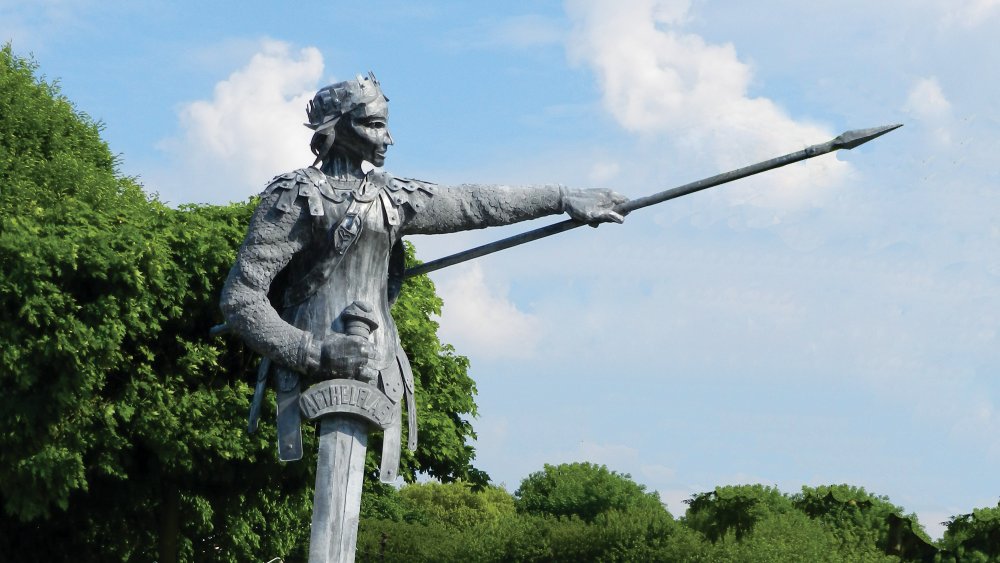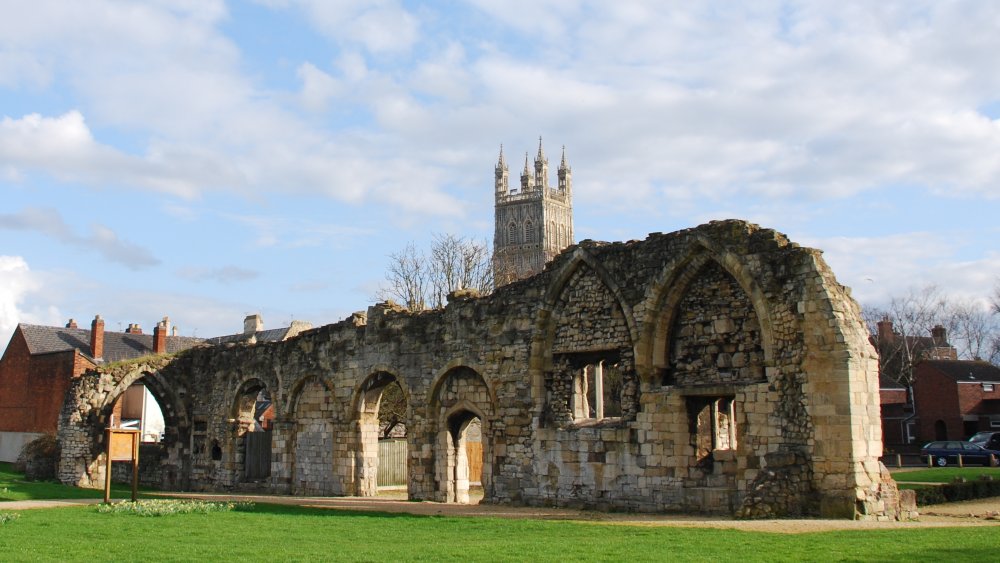The 10th Century English Warrior Queen Who Crushed The Vikings
England has many famous queens, from its reigning monarch Elizabeth II, to Gloriana herself, Elizabeth I, to Victoria, the grandmother of Europe. But we don't often talk about the queen of ancient times who ruled England and fought back Viking invaders.
Meet Æthelfæd, or the easier to type Aethelfaed, who ruled the Kingdom of Mercia in the East Midlands from 911 until her death in 918. She was the eldest daughter of Alfred the Great, wrote the British Library, and was married to Aethelred of Mercia. Alfred had pushed back Viking invaders in 878, and Mercia agreed to come under his rule.
But when Alfred died in 899, the Vikings began making noise again. Mercia sits on territory closest to Viking-controlled England, so it became imperative to protect it, reported the BBC. Aethelred died in 911, and Aethelfaed became queen, in what Ancient Origins said is the only instance of female ascension in Anglo-Saxon England.
This woman's work
Aelthelfaed had strong royal blood, but it did not mean her ascension to the throne was widely accepted. Her father's main territory, Wessex, where she grew up, was not tolerant of strong female leaders, explained the British Library. According to her father's biographer, "the West Saxons do not allow a queen to sit beside the king, nor to be called a queen, but only the king's wife [because of] a certain obstinate and malevolent queen [from Mercia], who did everything she could against her lord and whole people."
While she ruled Mercia and helped protect it, Aelthelfaed's reign did not mean society in general wanted more queens to be a monarch in their own right. But Mercia is different, said the BBC. There, women had more substantial involvement in administration and life at court. Mercia appreciated women like Aethelfaed, who had an education in politics and war. She used the military knowledge she inherited from her father and expanded Mercia's territory. She even pushed into Wales and Northumbria. She led Mercian armies against invading Vikings.
She was a fierce warrior, but why haven't we heard about her?
Aethelfaed led the creation of burhs, kind of like forts, in Viking-controlled areas like Tamworth and Stafford, wrote Ancient Origins. Aethelfaed had been able to beat back the the Vikings before. In 913, according to the BBC, Vikings attacked Mercia, but her armies overpowered them. Then, in 917, she sent an army to invade Derby, a town under Viking leadership and the first of the Five Boroughs of Danelaw to fall back into English rule. Historians believe Aethelfaed herself led the army. Soon after, more territories surrendered to her power.
The warrior queen Aethelfaed died in 918. But her achievements were always overshadowed by her father and her brother King Edward of Wessex. Not because her wins were lesser, but it's thought that writers of that time sought to erase her. Her exploits were mentioned as the brainchild of Edward in Wessex, but in Mercia, she was the venerated Lady of the Mercians.
Aethelfaed may not be as well-known as other English queens, but her victories helped pave the way to the United Kingdom that exists today.


